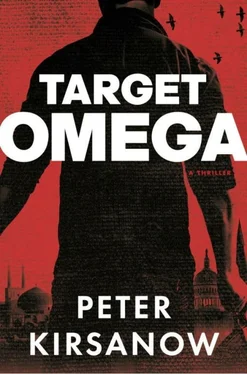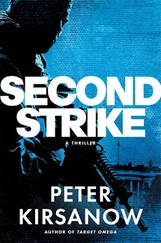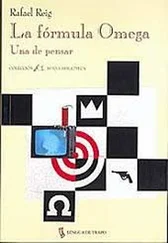Olivia decided to follow up on Garin’s tenure in BUD/S and SQT. Since that was the beginning of his special operations training, and since he evidently was still in some form of special operations, she thought it could be fruitful to explore any connections between Garin’s SEAL training and his current occupation. She planned to start with finding out who the instructors for Class 226 had been. Maybe one or more of them still had a relationship with Garin.
But first, Olivia decided to try something easy. She Googled him. It took her ten minutes of scrolling through hundreds of dead ends before she linked to a fifteen-year-old article in The Cornell Daily Sun. It was a sports-section report on the Cornell football team’s 21–17 victory over Yale. A free safety by the name of Mike Garin had returned two interceptions for touchdowns, including the game winner. She scrolled to the bottom of the piece, where there were a series of game-related photos including one of a Cornell player standing next to a stocky, tough-looking man who appeared to be in his mid- to late sixties. The caption read “Big Red Star Congratulated by Biggest Fan.”
Because the player in the photo was wearing a helmet, Olivia couldn’t be sure if Mike Garin, Cornell football player, was Mike Garin, special operator. She hit the link under the player’s name and a few seconds later a page of statistics and honors appeared. This Garin was six foot two inches, 210 pounds, and had been honorable-mention all-American, as well as all-Ivy. Olivia knew enough about football to recognize that it was uncommon for an Ivy Leaguer to be named an all-American — even an honorable mention. She thought it even more uncommon, however, for an Ivy Leaguer to be a lethal commando.
At the bottom of the page it showed that Cornell’s Garin was from Cleveland, Ohio.
She hit the link under Cleveland and more honors appeared — this time from high school. By his senior year, Garin had been a second-team high school all-American in football and small school division state four-hundred-meter champion in track.
Her father having played at Alabama, Olivia knew full well that high school all-Americans generally got scholarship offers from major powers such as Alabama, Ohio State, and USC. It was unusual for someone like that to end up at an Ivy League school with its rigorous academic requirements and lack of athletic scholarships. This Garin, whether or not he’d gone on to become the special operator Garin, was a peculiar specimen.
Olivia went to the bottom of the page, where there was a grainy photo of a taciturn high school football player standing beneath goal-posts on a football field. Olivia took out the photo from Garin’s file and placed it next to the photo on the computer screen. Both subjects had black hair, although the adult Garin’s was short and the high schooler’s was long and curly. Both had angular features and pugilistic jaws. But it was the intense, purposeful look in their eyes that convinced Olivia that the two Garins were almost certainly the same. It was a look uncommon for the Ivy League elite. It was, thought Olivia, the rather chilling look of a man capable of taking another man’s life.
Olivia spent another half an hour looking for more information on Garin before returning to the Cornell Daily Sun article. She reread the article carefully for anything she might have missed. She then went to the link for Garin’s college stats and to his high school stats. Olivia noticed that she had missed the link underscoring the term “all-American.”
She clicked on the link and was directed to an article from The Plain Dealer describing the recruitment of area high school stars by various college programs. She read the paragraph that mentioned Garin:
After receiving offers from a number of programs, including Ohio State University, Michigan, and Notre Dame, the Blue Devils’ Mike Garin narrowed his choice to the Naval Academy and Cornell, before ultimately choosing the latter. “We were really disappointed,” said the Academy’s Dan Dwyer, who had recruited Garin heavily, “but we wish Mike the best of luck. He’s going to be a fine college player.”
There was nothing more about Garin in the story. Olivia got out of the chair and stretched. Standing with her hands on her hips, she looked down at the computer screen and contemplated taking a short break before running down the instructors for Garin’s BUD/S and SEAL Qualification Training classes. That would take a lot of time, she thought, and even then she might not get anything more useful than what she had just learned on the Internet.
She decided that she should call Brandt and give him a heads-up that progress on the assignment was slow and she was skeptical of finding any substantive information on Garin. The Cornell Daily Sun article was fifteen years old, the Plain Dealer article even older. And any information gleaned from Garin’s BUD/S instructors would probably be more than a decade old. Olivia opened the sliding glass door and stepped from the sweltering July heat into the air-conditioned kitchen. She poured herself another cup of espresso and searched for her cell phone, which, miraculously, was in the first place she looked. She punched the speed dial for Brandt. It rang twice before she abruptly disconnected and placed the phone down on the kitchen counter next to a stack of the last week’s editions of The Washington Post.
Olivia stared at the newspaper as if trying to remember where she had put her keys. A few moments later she walked back onto the balcony and looked at the laptop screen, which still displayed the Plain Dealer article. “‘We were really disappointed,’ said the Academy’s Dan Dwyer…”
Olivia hurried back inside and rifled through the stack of newspapers until she came to Thursday’s edition. She opened the first section and leafed through the pages before stopping at page five. There, at the top of the page, was a story titled “President of DGT to testify Monday before the Senate Select Committee on Intelligence.” Olivia traced her index finger down the column until it rested on the phrase “DGT president Dan Dwyer, a former Navy SEAL, maintains that the company’s contracts with the Defense Department—” Olivia’s cell phone interrupted. The caller identification indicated it was Brandt.
“Olivia, I understand that you called.”
“Professor, let me call you back in an hour. I’ve got to talk to a man about a SEAL.”
NORTHEAST OHIO
JULY 14 1:22 P.M. EDT
Garin stood in the pantry of the bunker, sipping his second cup of strong black coffee and waiting for the caffeine to work its magic. He’d spent much of the night thinking about what was happening and who was behind it. When he had finally crawled into his sleeping bag, he had planned on taking a brief nap before heading to upstate New York in the morning, but the effects of the Pakistan op and the previous day’s events conspired to keep him asleep past noon, and when he rose, he was much stiffer than he’d been the day before.
The rest, however, was beneficial. His energy level was good and his mind clear. Joe had recommended that Garin use the old Burns family farm in Spencer, New York, as his base of operations. Joe had grown up there, but after his parents died, he and his four siblings, who had dispersed across the country, used it only occasionally as a family vacation home. Because the property had been held in trust under the name Craigy-Creek Farms for nearly two decades after probate of their parents’ estate, there was no paper trail connecting the place to the Burnses. They allowed a local farmer, an old family friend, to grow corn on a portion of the land in return for performing the odd maintenance job. Since Garin had no connection to the place, no one, including the FBI, would ever think to look for him there. Garin decided it was perfect.
Читать дальше












